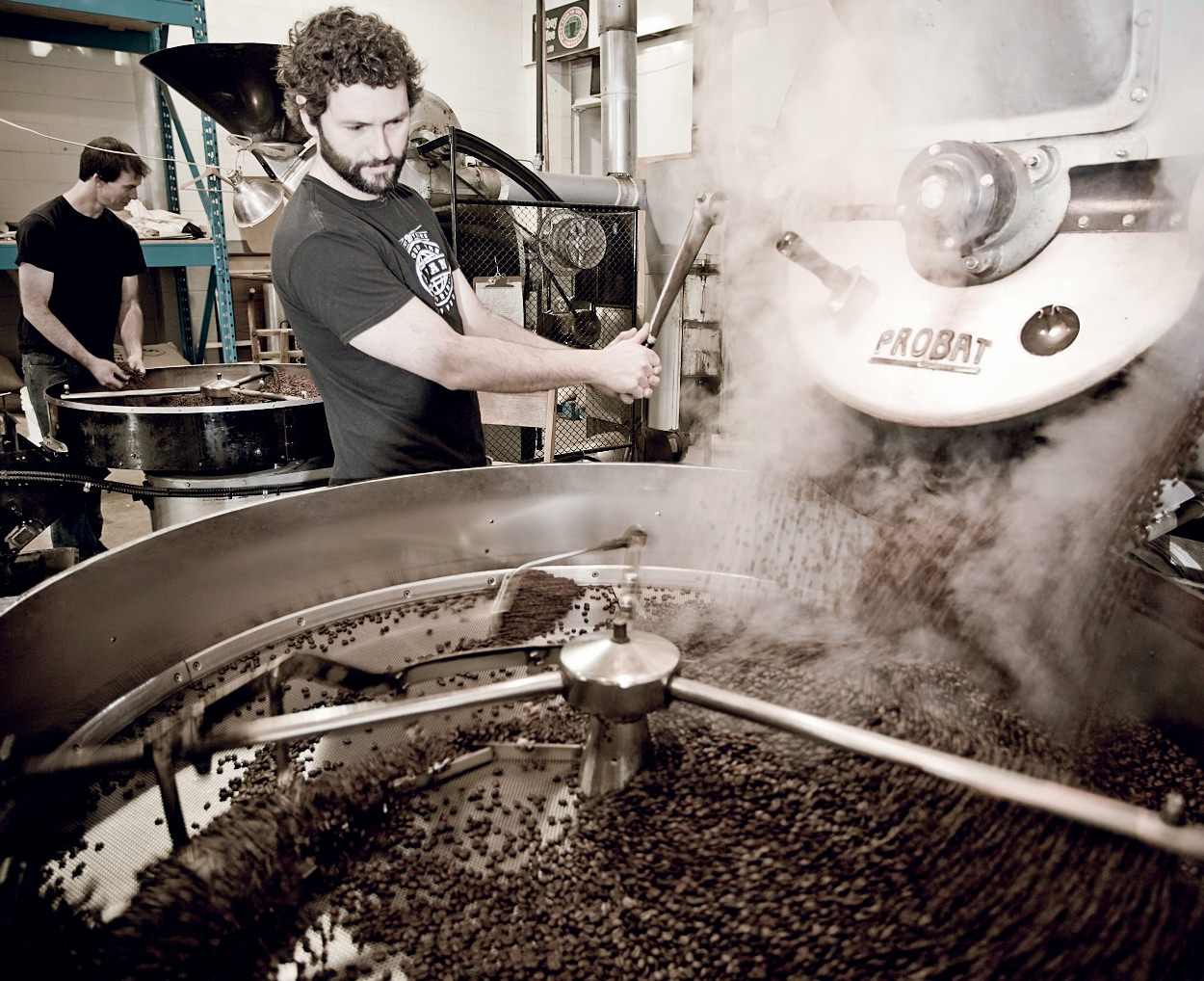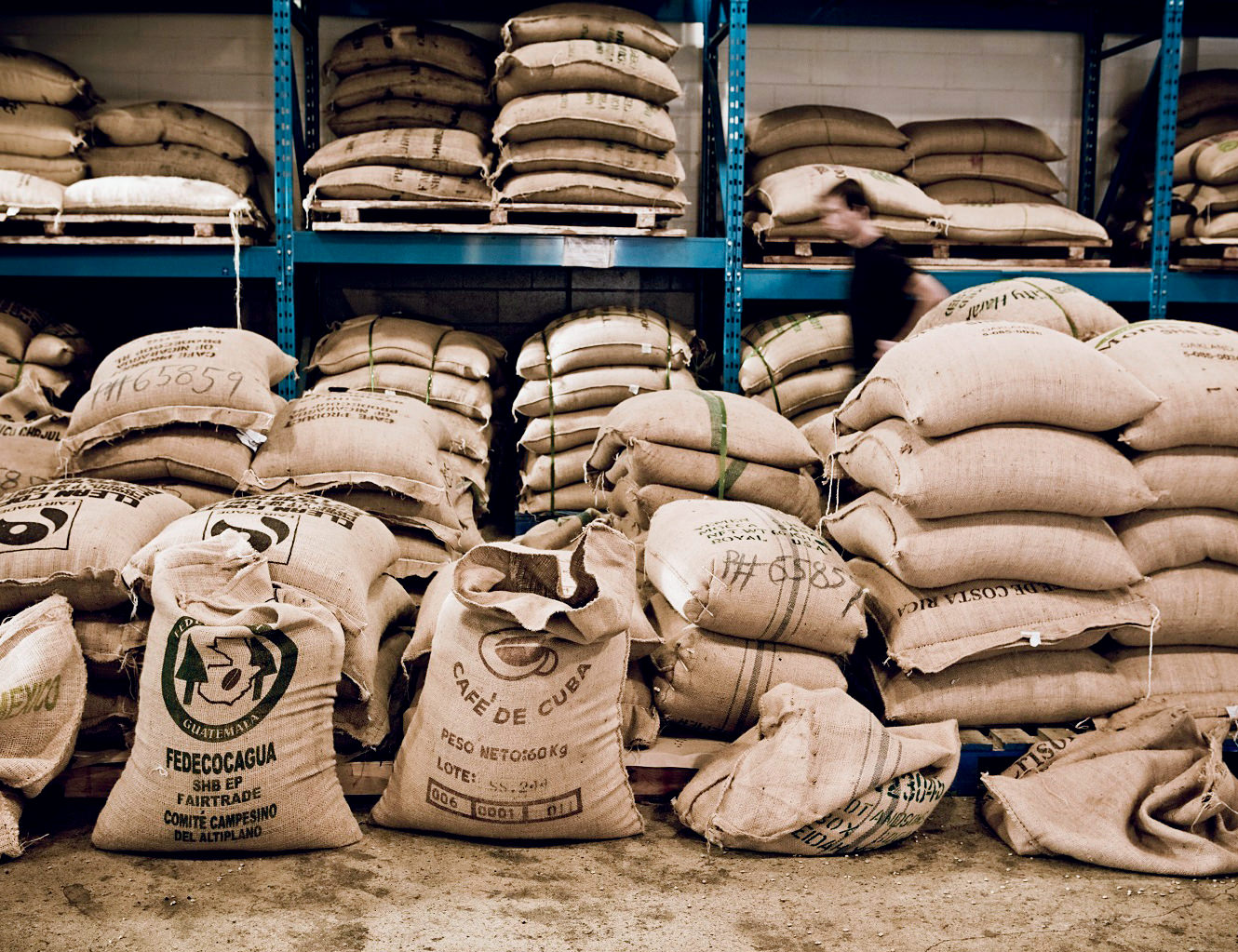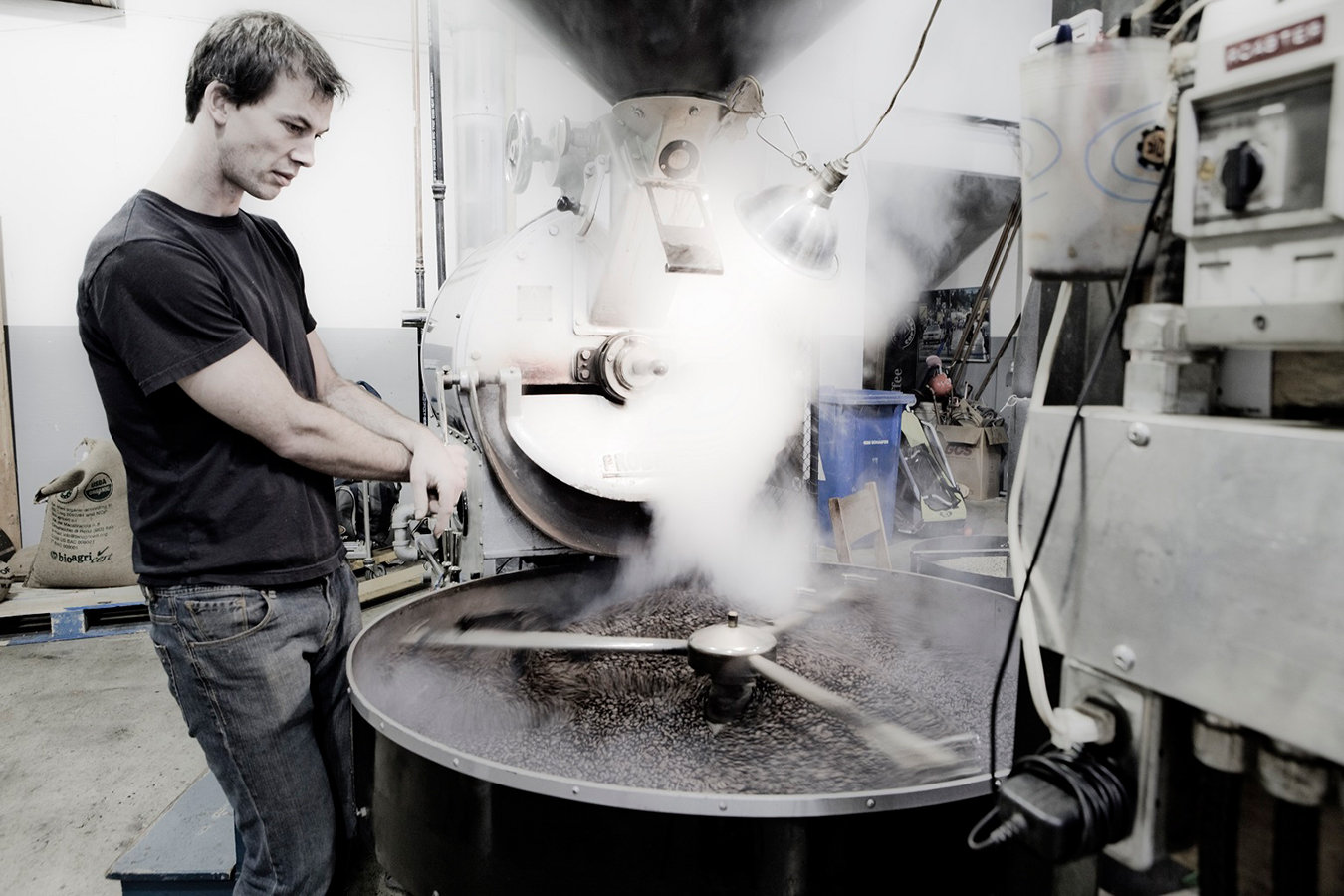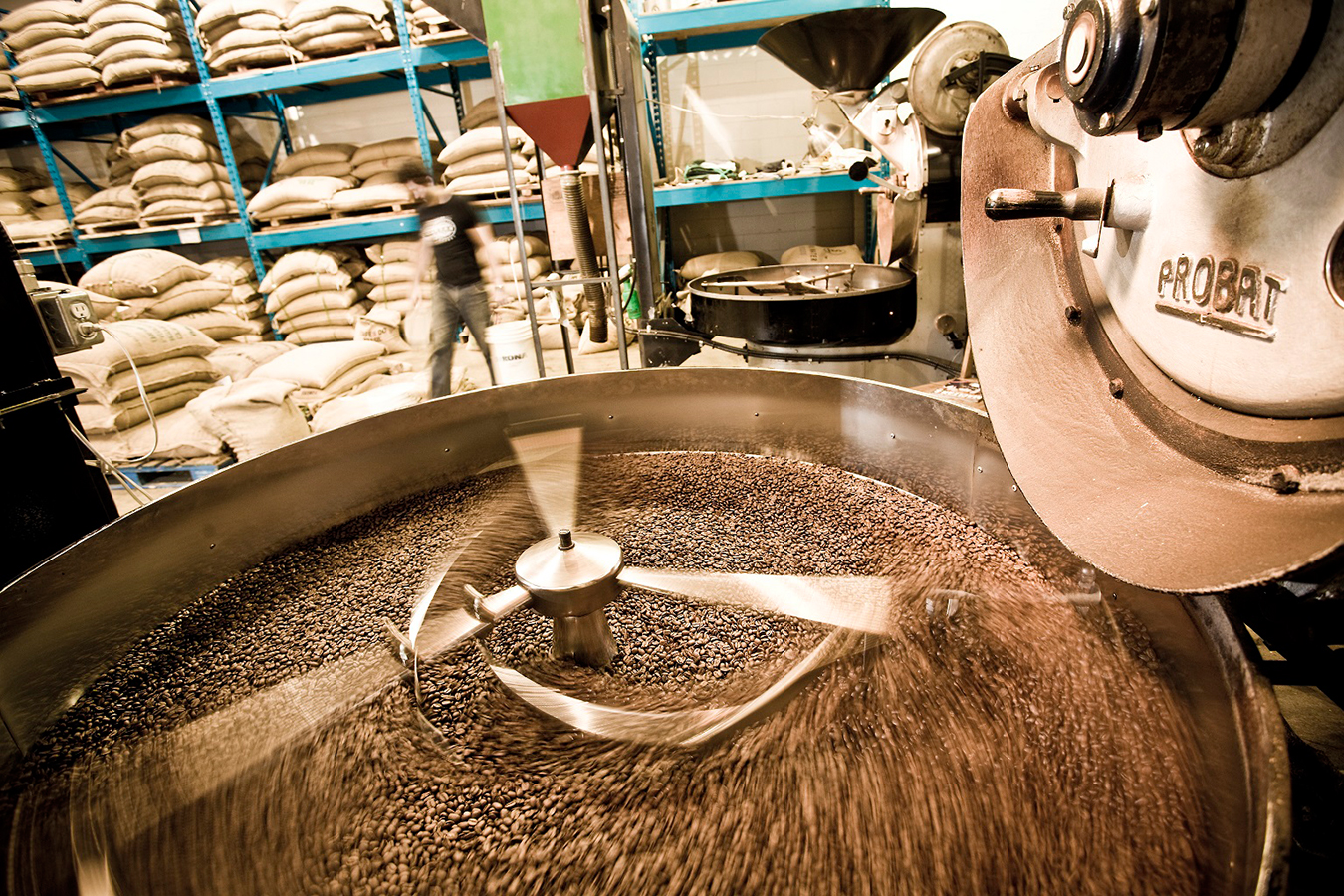“Pete started the business on his own in 1990, and I walked into his store as a customer—Pete was working behind the espresso machine—and I thought, holy shit, this coffee is so good,” says Barney McKenzie of his business partner for the past quarter century, Pete Boëda, who founded Bean Around the World after inspiration struck at a café in San Francisco in the late 1970s.
“I remember it like it was yesterday,” says Boëda. “It was the atmosphere, the energy, everybody shared tables and spoke to each other, it was a real community feel in this bustling city. And then when I had the coffee, I thought, this is amazing!”
When Boëda relocated from Calgary to Vancouver 10 years later, “I knew exactly what I was going to do,” he says. Back he went to San Francisco on a fact-finding mission and absorbed as much information about the industry as he could from the café’s owner, who roasted all of his coffee onsite. “I was there early in the morning, at lunchtime, in the evening, just soaking up what this fellow had created,” he says.
Boëda came home from his trip with a small roaster and 15 bags of coffee, in search of a location where he could create a welcoming atmosphere and fantastic freshly-roasted coffee, and started the café in West Vancouver where he first met McKenzie. “We became friends and I started buying coffee from him for a restaurant I owned called Café Barney, and then we opened up a bunch of coffee bars together,” says McKenzie, of the Bean Around The World enterprise that today includes 23 cafes in British Columbia, including the second location on West 10th that he opened with Boëda in 1992.
The two travelled extensively in the early days, when direct trade was fairly uncommon, sourcing the best beans from around the world (get it?), developing relationships with farmers and brokers, and acquiring a large portfolio of fairly-traded, organically-grown raw beans that they roast-to-order at their roastery in North Vancouver.
The small team—Boëda, McKenzie and five full-time staff, including three master roasters, one of them Boëda’s son Jeff—orchestrates orders to over 100 cafés, including their own, that serve Bean Around the World’s coffee in the Lower Mainland, roasting over 25 varietals by hand in small batches in vintage cast-iron roasters to create over 11 different blends.
“Our darkest roast is Black Mountain, which is really, really dark and when people love it, they don’t want anything else,” says McKenzie of their penchant for dark, deep, bold roasts. “We’ve always roasted well after the first crack into the second crack with most of our coffees,” he says of the artisanal roasting technique that requires a keen ear—to hear the beans crack—as well as sight and smell. “We also roast down the spectrum to a lighter roast, but our lightest roast is probably a medium compared to most companies. We just love dark coffee,” says McKenzie.
“When we started,” says Boëda, “we were one of the only cafés roasting in-store and providing dark-roasted coffee, and when the whole new wave came about seven years ago with lighter roasts we didn’t buckle, we thought, ‘We’re going to stick to it because we’ve been successful with it and people like it.’”
Another thing they’ve always stuck to is cultivating community, from the chummy atmosphere in their neighbourhood cafes, to local athlete sponsorships, to philanthropic endeavors abroad. “All of our stores have opened up in kind of B locations, and they’ve become community fixtures; a place for people to meet and gather and express themselves and have coffee,” says McKenzie, whose good friend from high school opened Bean Around the World’s fourth location in Victoria’s Chinatown in 1994.
Boëda’s son Jeff, the company’s head roaster and coffee buyer and an avid mountain biker, inspired them to get involved with community athletes through fundraisers and donations, from downhill riders to skiers, including their current benefactor, Olympic ski cross racer Georgia Simmerling. “She actually recently medalled in Calgary,” says McKenzie proudly, “she came in second in the world!”
And afar, they have close ties with coffee-producing communities in Cuba, Mexico, Peru, and especially Guatemala, where they helped build a school, and continue to pay one of the teacher’s salaries, on a plantation they felt was exemplary in both social and environmental initiatives. “We’re not doing it just because it’s a business,” says McKenzie, of their entrepreneurial evolution. “We’ve been doing it for 25 years because we enjoyed it. If we’re not having fun anymore we don’t want to do it.”












